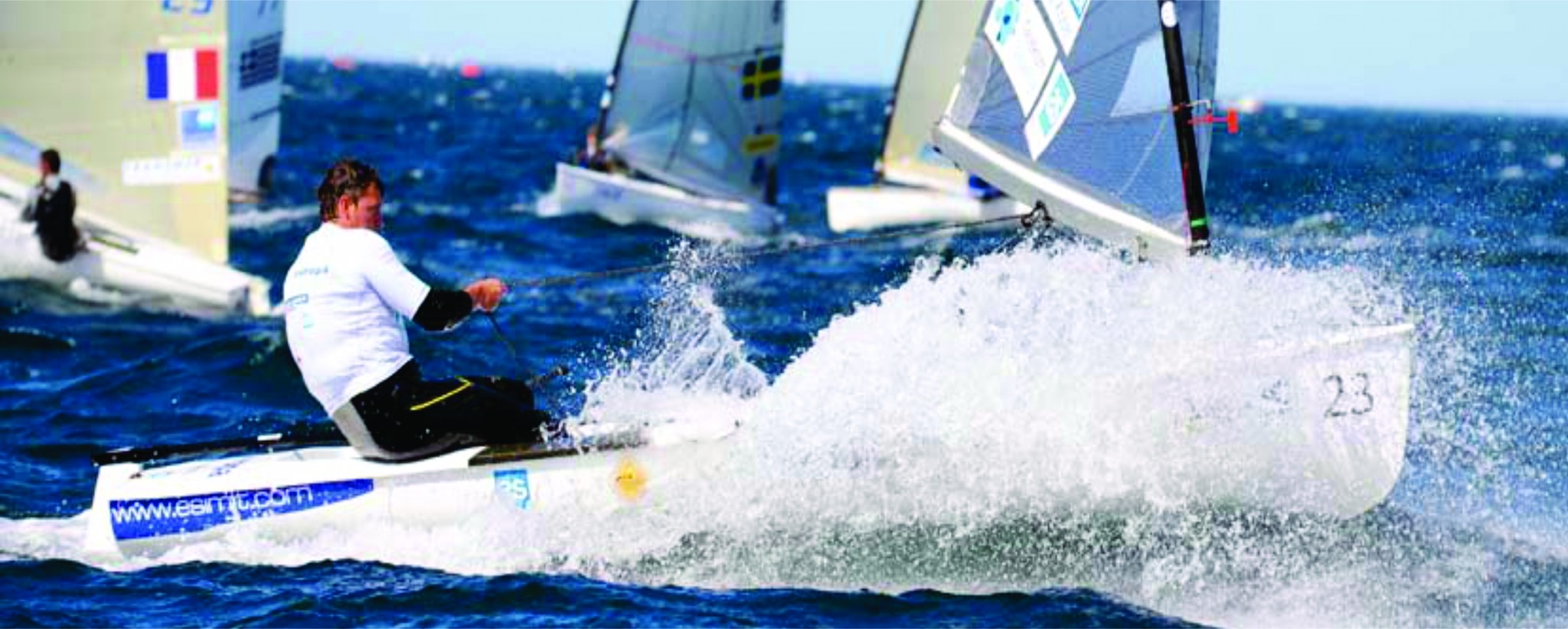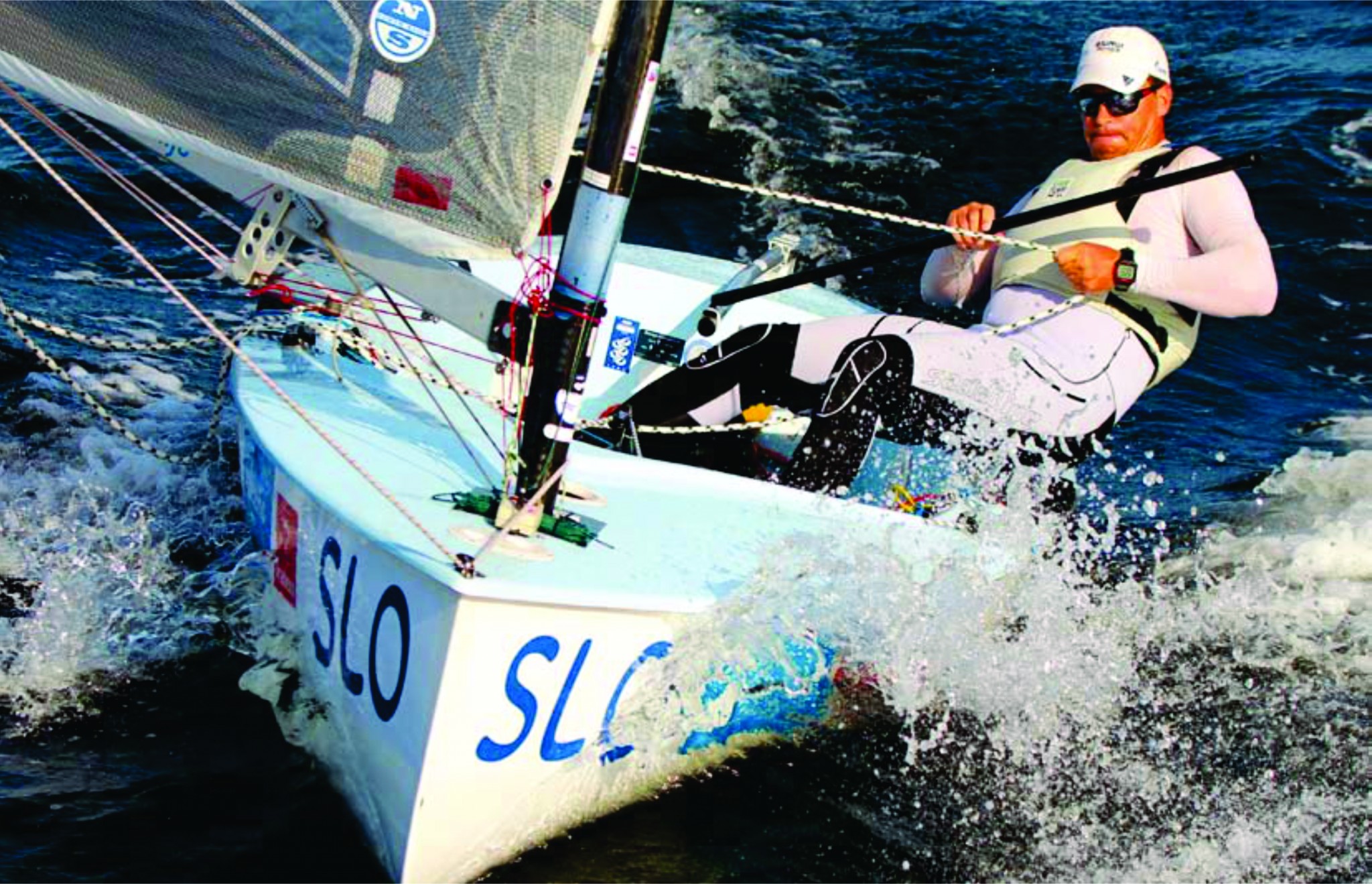
Vasilij Zbogar is preparing himself for what he says is his last Olympic Games. It will be his fifth Games and though he already has two medals from the Laser, he wants to add a Finn medal to the collection before hanging up his boots one last time. After winning the Laser bronze and silver medals in 2004 and 2008, he switched to the Finn in 2009 and immediately began carving out a heavyweight career. He placed sixth at the 2012 London Olympics, won the 2013 Finn Europeans and the 2014 World Cup Final in Abu Dhabi. By the time he gets to the start line in Rio he will be 40 years old, most likely the oldest sailor in the fleet. We interviewed him in Rio during the 2015 test event as he was recovering from a cycling accident that left him out of training and competition for two months. He has since bounced back to win the bronze medal at the 2015 Finn Gold Cup, in Takapuna, his first Finn world championship medal.
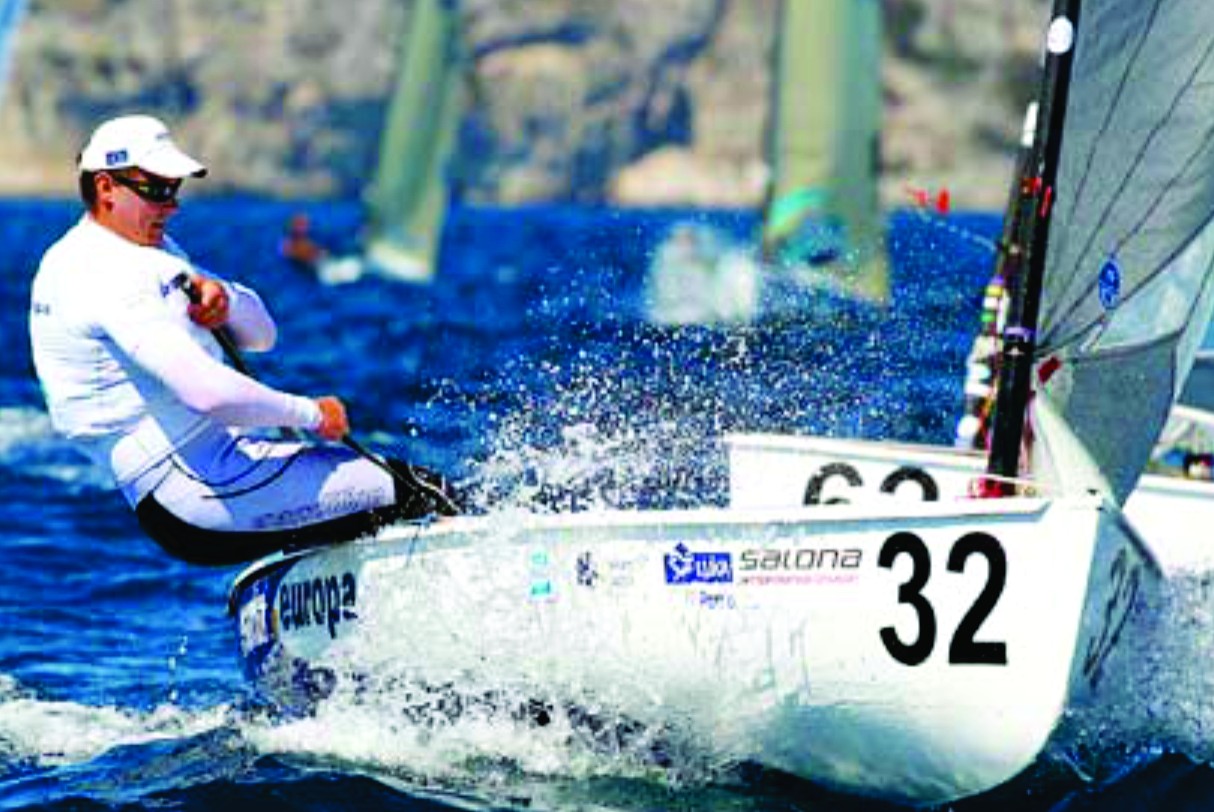
“It is definitely very hard when you are my age. Also to recover from racing takes much longer than before. At the moment the physical side is not on target as I fell from my bike and broke two ribs. These past two months we were supposed to train for this event and for the worlds in Takapuna but it’s been quite difficult for me. I was motivated to train and wanted to train but when things happen you are forced to stop and after two months you are basically starting again from the beginning, so I need to get back into shape physical. The good thing is that last winter I was working really well and I got really good boat speed in stronger wind, which I needed, so only time will tell how much I lost in those two months when I was not training.” What is different for him this time around? “This time is quite different, especially this last year before the Games. For the last Games I was fighting with Gasper Vincec for qualification up until almost the last month before the Olympics and I didn’t have so much time to actually train for the Olympics. I spent a lot of effort and energy just qualifying. This time I am already qualified, so for the next year I can just focus on the Olympics and for sure the programme will be much different from last time.”
Test event
The test event was his first chance to race on the Olympic sailing areas, and he highlighted the importance of spending time more in Rio. “The racing area is different from the usual race areas we have in Europe so for sure we need to spend some more time here and learn how all the systems work. At the moment I am not very positive but we still have one more year and we are planning to have as many days possible here in Rio training. Many sailors have been here for years and you can really see the difference between who has been sailing here before and who has not. We definitely need to spend more time here. We will try to have three more sessions of 15 days here before the Olympics starts.”
After 34 years competitive sailing, he says he finds the need for improvement the main motivating factor to keep going at this level. “For sure changing class was a good motivation for me because I spent many years in the Laser and now if I look at the Finn this is my sixth year, so I am still very motivated because I can still see room to improve. I don’t think too much about the results but I feel that I can still improve a lot. Of course I think here for all of us the biggest opponent is Giles Scott, who is one step ahead of everyone, but the rest are quite close so the battle is very open. As Giles is much better, it is pushing everyone to get better and at the Games I think it’s going to be very close. Now in the Finn class you have many sailors that can be in front and many sailors will fight for these three places at the Games.” He says, while age is becoming a problem, there are also many other changes in the campaign that are keeping it moving and helping him to improve. “As I said, age is playing a big role. I need more rest. I cannot sail as many regattas, and the problem is very different. Also over the years you change your coaches. From this year my brother is coaching and organising everything. I have had a new fitness coach for the past two years, so everything is changing. Technology is changing. The approach to training is different. Physical training is changing. This is developing over the years all the time, so you just need to keep following the new trends in training and you are fine. That’s why I am still sailing. You see room to improve and all the time we are trying something new to see how we can get better. Basically everything cannot stay the same. Every month something changes, depending on many things.” “I am from a country where there are normally very light winds. From Optimist until when I was a 470 sailor we used to sail mostly in light winds. In winter it was too cold and in summer it was really light winds, so from the beginning I was good in light wind. In the Laser I was good in light to medium winds. In the Finn in the beginning I was good in light winds. I have never been extremely good in strong winds, and I probably never will be. It’s not in my DNA, but I am trying to improve so I can get closer to the best in strong winds and try to make a difference. That was always my strategy in sailing. I like the events when you have a mixture of everything. For me London was really hard and when I look back and see I was very close to a medal in really challenging wind strengths I really did a good job. In Rio, it’s a mixture and I think that helps me a little bit.”
All about the medal?
After so many years does he still enjoy the sport or is it all about the medal? “Of course it’s both, but I can spend hours on the water. Many of my coaches will tell you they force me to come in from the sea. I really enjoy sailing and especially competing, but it has to be both. It’s a really, really nice sport because it’s a mixture of fighting against nature and fighting against opponents, and that has a really special charm.
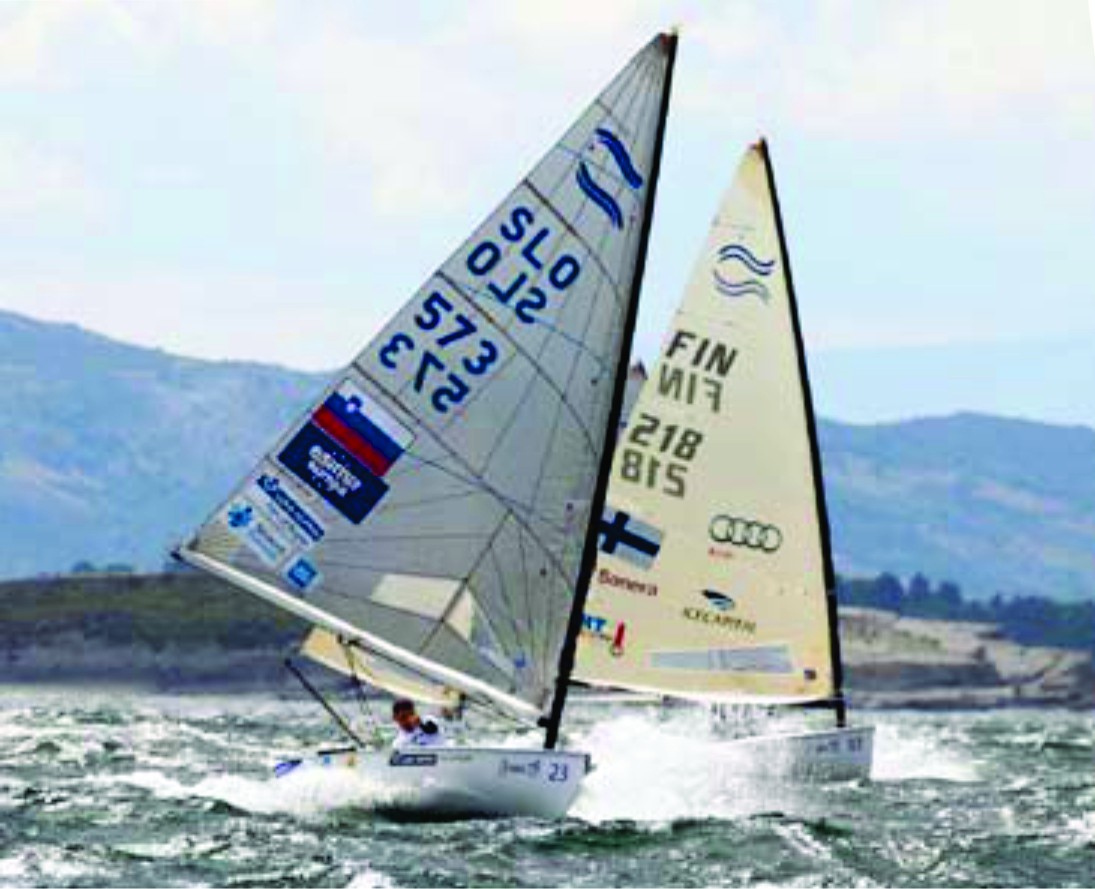
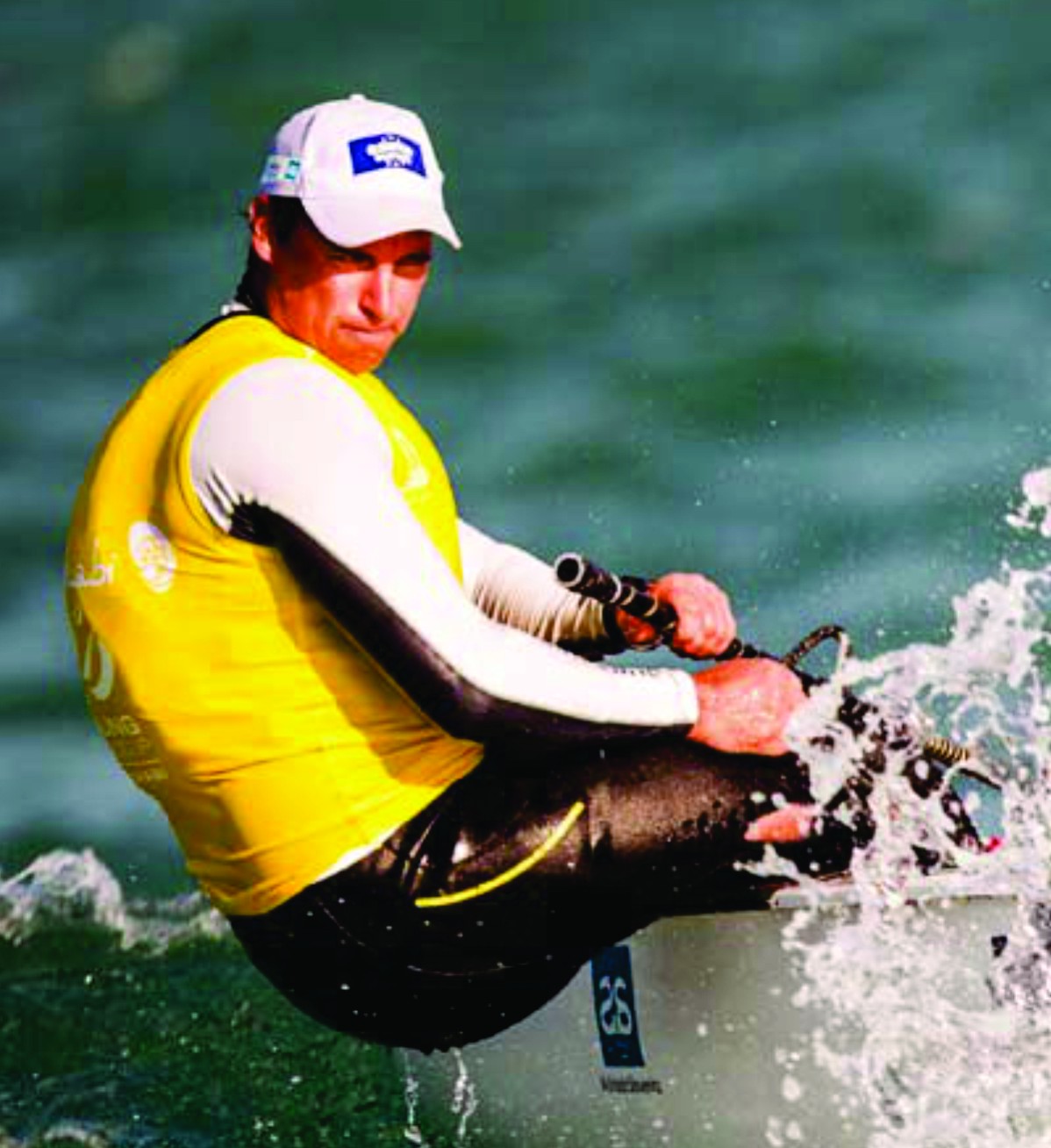
” After the 2012 London Games he played a crucial role in helping Luca Devoti set up the Dinghy Academy in Valencia in his bid to continually improve. “I am from a small country and Luca was working then with the Italian Federation and I said why can we not do something similar but for sailors who cannot afford to have bigger budgets and to have good sailors to sail with. As I did the same before with SailCoach the idea was to do something similar with the Dinghy Academy. To have good sailors who want to improve and don’t have many possibilities to do it. We now have 5-6 very good sailors who are willing to go to the Olympics and are pushing hard. And for me this is excellent. They are young, they are motivated and they push me as well to improve, so the Dinghy Academy for many sailors is the opportunity to follow their dream, to go the Olympic Games and make a good result. Luca is really doing an amazing job. Many of the sailors have no where else to sail, and many at the Dinghy Academy are basically there for free with Luca helping everyone to improve and make the first step towards getting to the Olympics.”
Famous sportsman
Vasilij is one of the most famous sportsmen in his home country of Slovenia. In a nation where just a few years ago sailing was a little known sport, it hasn’t happened by accident and he is quite outspoken on the need for sailors to be more professional and pro-active when it comes to sponsorship and media exposure. “You have to understand that my budget is quite big and the federation is maybe covering 20 per cent of that. I have to find the rest myself and this is through sponsors. I put a lot of effort into getting sponsors. So the PR thing is really well organised back home and everyone is happy. We fight for every supporter we have back in Slovenia and we give them information about me and keep them up to date. For me, apart from training and sailing, the PR part takes a huge amount of time and a lot of effort.” His advice to the younger sailors is quite simple. “You have to believe in yourself and believe in what you want to achieve and then to make a nice story out of it.
Make everything look very professional. You have to look extremely smart and extremely professional. I have had many doors closed and I didn’t get anything, but this is part of the experience. But then you refine your story and change it to find solutions and new ideas.” “Of course first it helps if you have made a good result so people start to trust you when you speak to sponsors or any kind of foundation or the people who want to help you, because if you have results, such as an Olympic medal behind you, they trust you when you speak and when you say you want to do this and this, they trust you.” “If you make a story and, and especially with the biggest companies, they don’t look at the return of everything. They want an image. For example a telecom or insurance company is not going to make more money because they sponsor me, but if there is a story behind it they promote this story. And they are happy to be part of this story. You have to have this story.” “So I can have a decent programme over the years I really have to work hard to have sponsors, make events back home make events for sponsors, because in the end the sponsors help me to do my programme and it becomes a roller coaster when you have to be in the media all the time. Now it’s a bit easier, but in the beginning it was really hard. You had to push everything to the media and TV. Now they ask for it, so it’s easier. They ask and we send a video and know its going to be on TV, but when I am home I really work hard to make sailing as popular as possible because many people see sailing as quite an easy sport: they should try the Finn and then they would definitely change their mind.” “I remember my first commercial for Telekom. We gave them the idea for the commercial. It was very popular back then. “When there is no wind I am surfing.” So the commercial was about the wind and then no wind and I had this laptop and I was surfing on internet. We gave them this idea and they made a 40 second spot. And we ended up making four spots for them. And they were really successful.”
Financial support
He explained that however successful you are, you still have to look for sponsors. They very rarely come knocking on your door. “It always starts from me. It’s almost impossible in sailing that someone comes to you and offers support. I have two private supporters who have done that but bigger companies always look at the return, and in sailing at the beginning they don’t see the return but then I usually try to get to the top of the company and I try to explain what sailing is. If you have a good story then they usually help, but in sailing, they don’t come you because they don’t see the return for it.” In Slovenia sailing was almost an unknown sport but now it has become very popular, and a lot of people follow it. “When I go back home everyone knows about my results and what I am doing. For sailing this is really hard because you don’t have supporters on the water, so all they see is what they are given. It’s hard to get people to follow.” Promoting the sport is a high priority for Vasilij. “Before I came to Rio
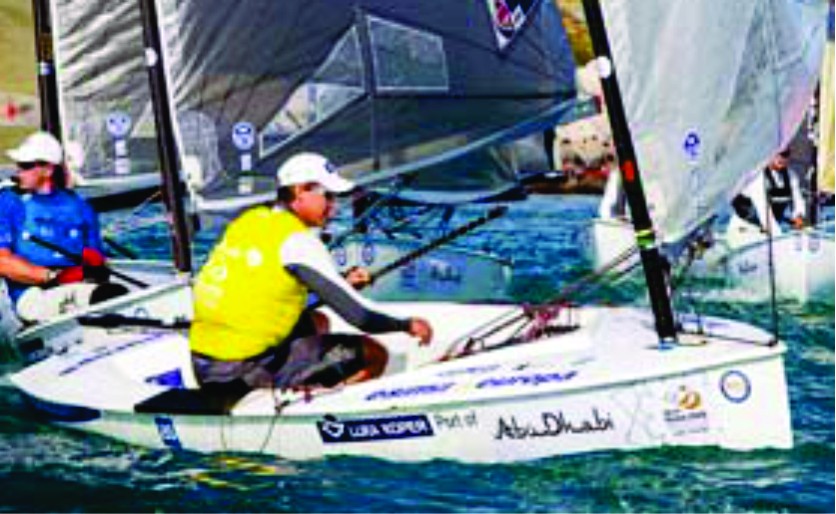
I had a lottery and the winner went with out the Finn for a day to try it and it was a really nice thing. We always have to be one step ahead to be popular as a sport. If we look at other sports, they have big influence, such as soccer, so we always need to have to have new ideas. Luckily I also have some good friends with me, helping me with this.” “Nowadays for the sponsors, the main thing for them is to create a good name for the company. They don’t want trouble. For example, if a soccer team sponsored by a car maker, and then other team who are against them are not going to buy those cars, so that’s part of the game.” “Sailing is a very quiet sport on this whole, so if you guarantee a good image then they are going to be proud of this and what you can achieve together they are wiling to help, and for sure in sailing the budgets are smaller.” Turning the conversation to the latest Finn class initiative, the FINNTEAM crowdfunding programme, he said, “This was my idea. This was my diploma at University. To have a sponsor for three or four guys in a multinational team. It’s a good idea, but it needs someone who has time to do it. It will work though. It worked similar with SailCoach and it shouldn’t be a big budget for some big companies and it could be a really good return and a good story for everyone who is a bit famous in their country. It works for everyone.” How would he like to see sailing developed as a professional sport. “The last few years it has changed a lot with the Abu Dhabi final and a little bit better World Cups with less boats. I think it is going in the right direction. And the media is happy to find new things, but I thing the only problem now and especially back home, everything is always a bit different, there are always different rules, discards, medal races, so the formats we set for every regatta should be the same, then it might be a bit easier for people to understand.” Is it really the end of the Olympic trail for him? “After Rio I will stop. Rio is my last race in Finn. Then I maybe will race in the Masters. It’s been a already a long and successful career and it’s time. I have been sailing 34 years already. It’s going to be hard but there should be an end. But truthfully I don’t know what’s next. Definitely I’d like to coach for a few years. I think I have a lot of knowledge and would like to give it to the young sailors, but on the other hand I want to be home a lot. I will see. I have no plans. If the opportunity was there, of course the America’s Cup is the dream for everyone. The Volvo Ocean Race must be really hard; I don’t think it’s for me. I would like to try but ….it’s different sailing. You have to be used to rough things. We’ll see what time brings.”
